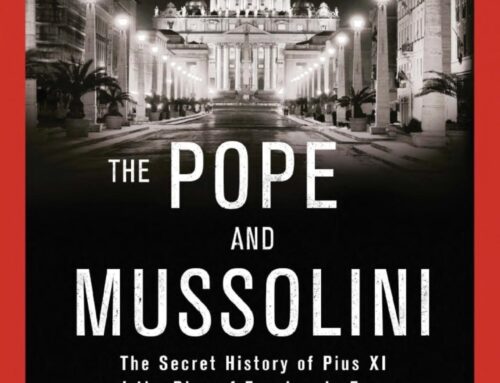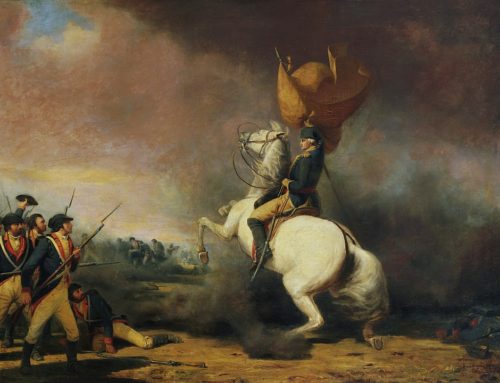Until the 2016 Trump election, most of us thought that polling techniques had improved so much that we could confidently predict presidential outcomes. We assumed that Harry Truman’s surprise victory over Thomas Dewey was not accurately forecast because polling data was unsophisticated in that era. 1948 was indeed a surprise. Veteran politicians noticed the enthusiasm and large crowds attending Truman rallies, but assumed that Truman could not possibly win because all 9 national polls predicted a Dewey victory.
Pietrusza’s book, while too long, provided some insights into Truman’s victory. In brief, Dewey ran a very poor campaign in part because Dewey himself was a cold fish whose speeches lacked punch. Dewey visited Oklahoma 13 times and Ohio once. By contrast, underdog Harry Truman was an impassioned partisan who never hesitated to “give’m hell Harry” to both Tom Dewey and the 80th Congress.
1948 was a war for the soul of the Democratic Party with accidental president Harry Truman pitted against his embittered left-wing predecessor as vice president, Henry Wallace, and stormy South Carolina segregationist Dixiecrat Strom Thurmond.
Until the emergence of a renascent progressive party, the 1948 election was significant because it proved two things: (1) a progressive such as Henry Wallace could not attract a significant following and (2) Arch Segregationists such as Strom Thurmond had limited appeal outside of South Carolina, Mississippi, Alabama, and Louisiana. In brief, the forces of the extreme Left and Right could not gather enough votes to prevent a victory by a centrist such as Harry Truman.
The poor showing of Henry Wallace severely hurt the Progressive Movement. It will be interesting the results in 2020 if the Democrats nominate a Progressive such as Bernie Sanders or Elizabeth Warren.
The defeat of Wallace ushered in the McCarthy era because so many communists had supported Wallace. Moderates were reminded that while Wallace was Vice President from 1941-1945, he was a heartbeat away from the presidency. In the era of the cold war and Wallace’s naiveté, most Americans were alarmed about the prospect of a communist takeover of the country. FDR would have preferred to keep Wallace as his vice-presidential running mate in 1944, but the party bosses were unanimously against him.
On the other hand, the African-American vote in favor of Truman began the breakup of the traditional alliance of the Southern bloc (Solid South) and the North’s urban communities. The overwhelming Black vote for Truman led to his victories in Illinois, Ohio, and California, putting him over the top. Political realists no longer feared offending arch segregationists. The final split of the alliance occurred in 1964 with Lyndon Johnson’s presidential election.
On the GOP side, it was a four-way battle between cold-as-ice New Yorker Tom Dewey, Minnesota upstart Harold Stassen, the stodgy but brilliant Ohio conservative Robert Taft, and the imperious but aged Douglas MacArthur. But Americans really wanted “none of the above.” They “like IKE,” but Dwight Eisenhower stubbornly resisted draft movements in both parties to run in 1948. Supported by Republican moderates such as Tom Dewey, Henry Lodge, and Jacob Javits, Eisenhower sought successfully the nomination in 1952.
Indelibly, we recall the iconic news photo of jubilant underdog Harry Truman brandishing his copy of the Chicago Tribune proclaiming “DEWEY DEFEATS TRUMAN.” But far more exists to 1948’s election that a single inglorious headline and a stunning upset victory. Award-winning author David Pietrusza goes beyond the headlines to reveal backstage events and to place in context a down-to-the-wire donnybrook fought against the background of an erupting Cold War, the Berlin Airlift, the birth of Israel, a post-war America facing exploding storms over civil rights, and domestic communism.
Franklin Roosevelt’s sons supported Eisenhower. At the last moment, Eleanor Roosevelt half-heartedly endorsed Truman. Truman to little avail reminded them that FDR had handpicked him to be his successor. Moreover, Truman tried under difficult circumstances to extend FDR’s New Deal agenda.
In conclusion, we are probably the last generation to remember the personalities that dominated 1948. I have voted many times for losers–Hubert Humphrey, George McGovern, Walter Mondale, Gerald Ford, George Bush 41, and Mitt Romney. That said, the only time I came close to tears was the defeat of Hubert Humphrey. For me, his speech supporting civil rights at the 1948 Democratic Convention placed him forever in my hall of fame.



